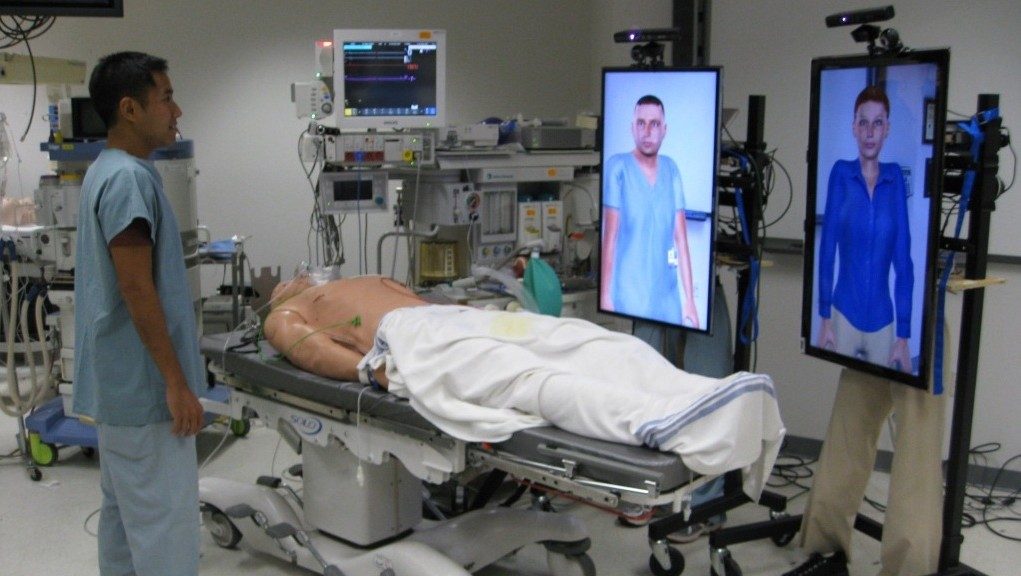 On today’s episode, I talk with Dr. Benjamin Lok from the University of Florida about how they’re using Virtual Humans as patients to train medical students. He talks about the key components for creating a plausible training scenario which include both accurate medical symptom information, but also more importantly a robust personality and specific worldview. Humans hardly ever just transmit factual data, and so whether the patient says too much or not enough, the students have to be able to navigate a wide range of personalities in order to get the required information to help diagnose and treat the patient.
On today’s episode, I talk with Dr. Benjamin Lok from the University of Florida about how they’re using Virtual Humans as patients to train medical students. He talks about the key components for creating a plausible training scenario which include both accurate medical symptom information, but also more importantly a robust personality and specific worldview. Humans hardly ever just transmit factual data, and so whether the patient says too much or not enough, the students have to be able to navigate a wide range of personalities in order to get the required information to help diagnose and treat the patient.
LISTEN TO THE VOICES OF VR PODCAST
Virtual humans help to embody symptoms that a human actor can’t display, assist in going through an extended interactive question and answer path, or they’re used within collaborative training scenarios where it becomes difficult to get all of the required expert collaborators into the same location at the same time.
Dr. Lok makes the point that creating virtual humans requires a vast amount of knowledge about the human condition and that it’s really a huge cross disciplinary effort, but one that is one of the most important fields of study since it has so much to teach us about what it means to be human.
Support Voices of VR
- Subscribe on iTunes
- Donate to the Voices of VR Podcast Patreon
Music: Fatality & Summer Trip







